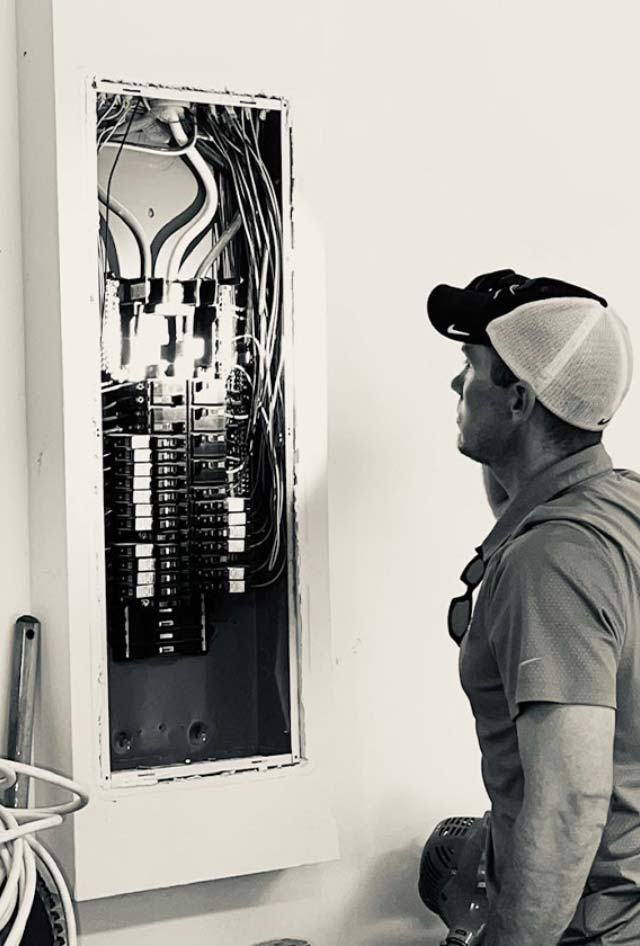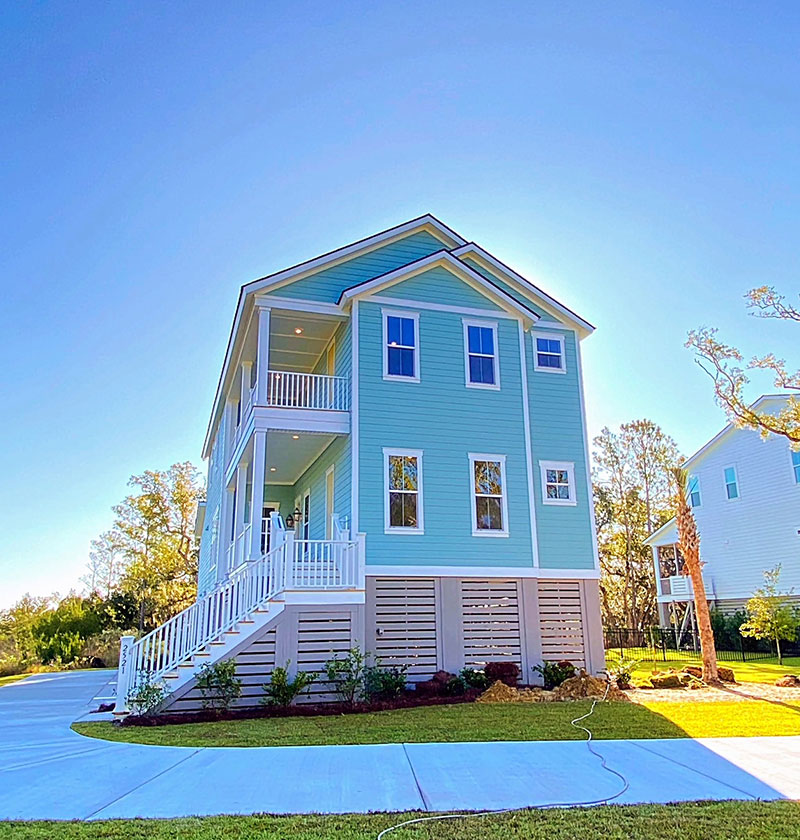Quick Quote
As the most trusted home inspection company in North Charleston, I know that purchasing a home is one of the most significant investments that you will ever make. That's why choosing the right home inspector is so important - because you want to know that your new home is in good shape. With PGR Home Inspections, you can be certain you're making the right purchasing decision.
Unlike some home inspectors in North Charleston, SC, I inspect from attic to crawl and wall to wall, while educating my clients throughout the home inspection process. Because a thorough home inspection ultimately depends on the inspector's dedication and effort, I make it my goal to put forth the maximum amount of effort to keep you aware and informed.
As a certified, licensed professional, I provide all of my clients with an unbiased third-party opinion, regardless of whether they are buyers, sellers, or real estate agents. Once we're finished, I will send you an in-depth, educational inspection report to help you make an educated decision about your sale or purchase.
With PGR Home Inspections on your side, you will build your knowledge and achieve peace of mind during the most stressful times.
Here's how:
- Investigative home inspection approach
- Thorough, detailed inspection reports that are returned to you quickly
- Fully trained, certified and licensed
- I offer several home inspection services for buyers, sellers, and real estate professionals
- Easy online scheduling so that you meet your due diligence deadline
- Competitive pricing
- Friendly, helpful, and ready to exceed expectations
Service Areas

What is a home inspection?
Think of a home inspection like an annual check-up at with your doctor. Home inspections are used to ensure that everything is working correctly in your home - from your sinks and appliances to your windows and roof. A great home inspection will help shine a light on concerning issues located inside and outside your home, which may affect your quality of life.
Home inspections are also helpful for spotting potential risks that may cause concern down the line. When we send you your home inspection report, you will have a much better idea of any problems that are present in your home. Included in your report are recommended repairs and suggestions on what actions to take as your home ages.
Because different circumstances require different types of home inspections, we offer several choices to cater to your needs:
General Home Inspections in North Charleston
You've heard it before - "A man's house is his castle." It is a place of peace, relaxation, and privacy. However, the steps leading up to your new purchase can be exhausting, expensive, and stressful. After all, when you buy a home, you're investing in your family's future. That is why I believe that having an unbiased general home inspection (or buyer's inspection) is an investment all on its own.
Our goal is to keep you informed and aware of all the components in your new home. In fact, I encourage you to be present and ask questions during your inspection. That way, you can walk into your closing with confidence, knowing you are making an informed purchasing decision. When you hire PGR for your general home inspection, know that I am here for YOU. We will spend as much time as needed to explain our findings and answer any questions that you may have about your buyer's home inspection in North Charleston, SC.
After I have inspected your home from bottom to top, you will receive your report that includes high-quality color photos depicting our findings the same day. Should you have questions relating to your report, simply give me a call after thoroughly reviewing it. At PGR Home Inspections, I strive to make this an enjoyable, informative experience that expands your knowledge and helps you understand building science.
Our general home inspections include:
- Unbiased top-to-bottom home evaluation, including hard-to-reach areas like crawlspaces and attics.
- Confirmation that all your utilities are in working order, like gas, electrical, and water.
- Verification that your crawlspace is accessible, and all livable areas may be accessed. This includes your electrical panel, water heater, HVAC system, and attic hatch.
- Reports delivered same day that detail any issues within your house and its systems or components.
- Free thermal imaging
- On-site wrap-up with plenty of time to answer your questions
Pre-Listing Home Inspections in North Charleston, SC
When you're selling your home, few things are as frustrating as a deal falling through due to maintenance issues. All too often, deals fall through because the buyer's inspector finds a significant issue that could have corrected earlier. Having a pre-listing inspection (or a seller's inspection) puts the control back in your hands. With a pre-listing inspection, you can get prepared for your sale by revealing any major defects in your home that need repairing. Having a pre-listing inspection saves you money, time, and reduces your overall stress levels in the long run.
By completing a pre-listing inspection, you can take as much time as you need to decide which repairs will increase your home's value the most. That way, you get the highest return on investment. By making these repairs on your own time, you can sift through several repair estimates and choose the one makes the most sense for your budget.
As you enter negotiations, you may present your pre-listing inspection as a token of good faith to interested buyers. Sharing your seller's inspection with potential buyers lets them get a look at the condition of your home. More importantly, it will let the buyer know how much money and work you have put into fixing your home's defects, which helps warrant your listing price.
If you want to reduce the time it takes for negotiations, save yourself money, and get the best price for your home, a pre-listing home inspection is a wise choice.
The benefits are endless when you hire PGR to complete a seller's inspection:
- Boost the chances of selling your home at a price that you can feel good about
- Manage any pre-existing defects or problems
- Put negotiating power back in your hands during closing
- Enjoy a smoother closing process
- Shorten the time it takes for funds to reach escrow
11th Month Home Inspection in North Charleston, SC
If you're thinking of having a new construction home built, it's easy to understand why. New homes are often more energy-efficient, come with all-new systems and appliances, and can be customized to your exact preferences. Buying a new home also means you won't have to make repairs or deal with the wear and tear that most older homes have. However, new construction homes aren't always perfect. So, when your home is finished, and your builder explains the one-year warranty on their work, it's wise to schedule an 11th month home inspection.
Much like a general home inspection, I take an investigative, non-invasive approach when we inspect your newly built home. I will evaluate all visible and accessible areas of your new construction home to spot any potential issues. I even use thermal imaging at no extra cost to you.
When I have completed your 11th month inspection, you will receive a shorter, comprehensive inspection report with color photos and information on any defects we discover. You may take this valuable information to your builder, who can then make any repairs necessary before your warranty expires. That way, any repairs needed are done on the warranty company's time.
Additional benefits of an 11th month home inspection from PGR include:

Homebuilders are aware that new construction homes can have defects. After all, there are many hands involved in building a house, including subcontractors you never meet. Because some flaws aren't obvious during the first year of living in a home, having an 11th month home inspection is a great way to protect yourself and your investment.
When you assume that your newly constructed home is void of defects, you could be setting yourself up for some nasty surprises down the line. For example, issues with your new home's systems might not reveal themselves until they malfunction. You will have to cover repair costs in cases like this because the builder's warranty has already expired. With PGR's 11th month inspections, I will ensure that your home's structure systems work properly. If they're not, you will have ample time to have any defects fixed before your warranty is up.
When you schedule your 11th month home inspection at the start of the last month of your warranty, you will have more time to submit a warranty claim. If you choose to wait until a few days before your warranty expires, you will be rushing to file a claim before your new home's warranty expires.

The PGR Home Inspections Difference
At PGR Home Inspections, I am proud to be the most reliable, thorough, unbiased home inspector in North Charleston, SC. I believe in working hard and treating our customers right, by giving them an in-depth look at their home to make knowledgeable decisions with confidence. I believe in working hard and treating our customers right by giving them an in-depth look at their homes to make knowledgeable decisions with confidence. When you allow me to serve you, I aim to exceed your expectations by inspecting "Attic to Crawl and Wall to Wall", while walking you through our inspection process step-by-step.
Ready to get started?
We're ready to get to work!
Give me a call today at 843-789-0653 with your questions. When you're all set, you can go online to
schedule your North Charleston home inspection
Latest News in North Charleston, SC
Disclaimer:


